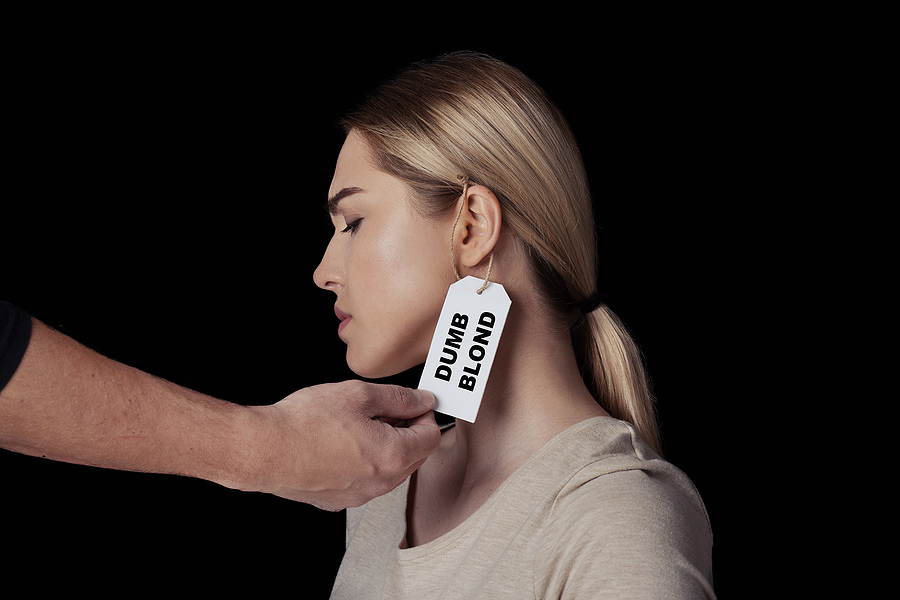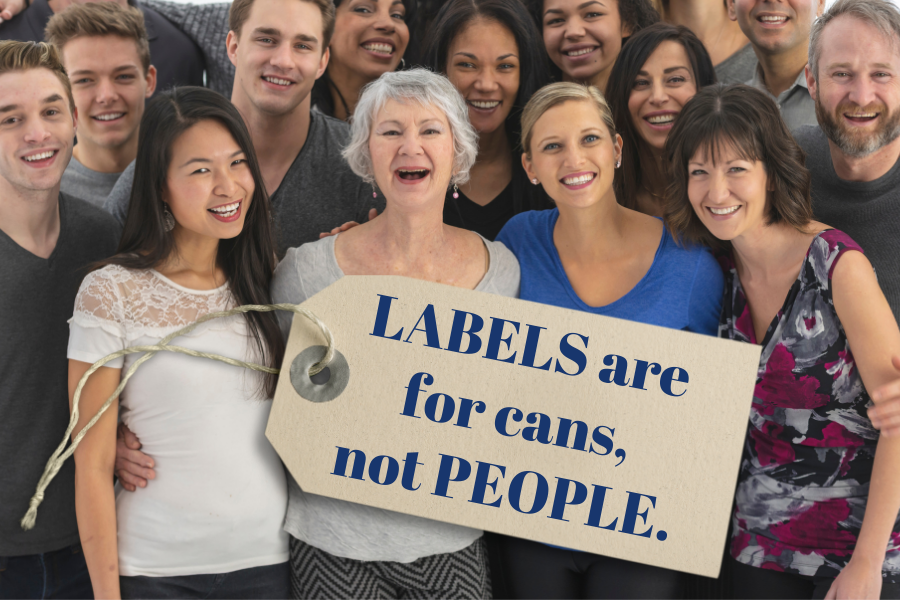In the intricate tapestry of our modern world, it’s disconcerting that labeling others has become an all-too-common reflex. We tend to oversimplify complex individuals, reducing them to mere words, colored by our biases and narrow viewpoints. It’s time to confront this tendency head-on and wholeheartedly embrace the awe-inspiring diversity that envelops us. By doing so, we can forge a profound connection with the boundless expressions of humanity that surround us.
How does the process of labeling others work?

Just like the labels we find on commercial products, they offer a brief summary of our personal interpretation of someone’s qualities and behavior. Each label we assign to someone shapes our expectations and how we interact with them. Labels can be applied not only to individuals, but also to groups who share commonalities such as age, gender, ethnicity, origin, and socioeconomic status.
What are examples of commonly used labels?
Labels reduce people to a limited scope of core characteristics and box us into using them as absolutes.
Notwithstanding our own personal repertoire, some of the more commonly used labels for others include:
- Positive: kind, generous, friendly, capable, responsible, kind, amazing, loyal, honest, smart, intelligent, and successful.
- Negative: worthless, lazy, useless, freakish, irresponsible, selfish, arrogant, dishonest, inconsiderate, and disrespectful.
What are the perils of labeling people?

(1) People are complex beings, encompassing a multitude of facets. Instead of relying on labels, which blind us to their depth and the richness they bring to our lives, let us embrace their complexity.
(2) Labels, especially those we assign to certain groups or individuals, are often tainted by biases passed down through generations, influenced by the rhetoric of likeminded individuals, or shaped by the relentless media propaganda. While these labels may or may not hold true merit, they have become deeply ingrained in our way of thinking.
(3) Our initial impressions of people often lead us to make snap judgments, shaping our perception of who they are. Even when time proves our first impressions wrong, it can be challenging to shift our perspective and let go of preconceived notions.
(4) It’s important to recognize that our labels and assessments may not align with the perceptions of others. The person we deem as “obnoxious” might be viewed by others as “gregarious.” Our subjective judgments do not define the entirety of someone’s character.
(5) Throughout their lives, individuals are in a constant state of learning, growth, evolution, and even regression. However, labels often hinder our ability to acknowledge and accept these changes. To break free from the constraints of labels, let go of your preconceived notions and embrace the fluidity of human existence.
(6) Labels extend not only to others but also to ourselves. By continuously reinforcing these self-imposed labels through our words and actions, they can become self-fulfilling prophecies. If we repeatedly refer to ourselves as “worthless,” we are more likely to act in ways that align with this negative self-perception.
(7) The use of derogatory labels towards others may provide a fleeting sense of superiority. However, it ultimately promotes intolerance and disdain towards those we perceive as inferior. Let us strive for empathy and understanding, rejecting the urge to belittle and dehumanize others.
(8) We often confine ourselves within the boundaries of self-limiting beliefs, convinced that our labels hold absolute truth. However, this mindset restricts our perception. For instance, if we believe that most older people are poor drivers, we will only notice those drivers on the road who reaffirm our expectations, ignoring the many older individuals who are skilled behind the wheel.
Let us transcend the limitations of labels and embrace the complexity and ever-changing nature of humanity.
How can you move beyond your labels?

Open yourself up to a more authentic perspective. Think about the labels you use to address certain individuals and groups of people. Delve deeper into their validity by testing your labels out within the context of diverse circumstances. If you challenge yourself to disprove the merits of your labels, you may find that they are not as factual as you once believed.

Written by: Patricia K. Flanigan, Smart Strategies for Successful Living
 Patricia K. Flanigan is a vibrant and passionate advocate for quality living and aging. She has dedicated over 28 years to working in higher education, but now enjoys a more peaceful lifestyle as the founding director and writer of Smart Strategies for Successful Living. In her free-time, she cherishes spending quality time with her family and friends, as well as getting out into nature with her beloved Samoyed dog, Wylie. Patricia loves helping others age gracefully and shares her wisdom through her content to promote the ultimate success in living.
Patricia K. Flanigan is a vibrant and passionate advocate for quality living and aging. She has dedicated over 28 years to working in higher education, but now enjoys a more peaceful lifestyle as the founding director and writer of Smart Strategies for Successful Living. In her free-time, she cherishes spending quality time with her family and friends, as well as getting out into nature with her beloved Samoyed dog, Wylie. Patricia loves helping others age gracefully and shares her wisdom through her content to promote the ultimate success in living.
For your link to Smart Strategies for Successful Living, CLICK HERE.
Discover More…
- Unlock the secret to a happier, healthier lifestyle by delving into additional captivating articles on our website at: Smart Strategies for Successful Living.
- Enjoy our uplifting and inspiring videos on our YouTube channel at: CLICK HERE.
- For more resources on Tech Help: CLICK HERE.
Check Out Our Captivating Videos
![]() About Smart Strategies for Successful Living: CLICK HERE.
About Smart Strategies for Successful Living: CLICK HERE.
![]() Your Journey of Self-Discovery: CLICK HERE.
Your Journey of Self-Discovery: CLICK HERE.
![]() Our YouTube Channel: CLICK HERE.
Our YouTube Channel: CLICK HERE.
Related Videos Worth Watching
![]() The Essentials of Successful Thinking: CLICK HERE.
The Essentials of Successful Thinking: CLICK HERE.
![]() Smart Ways to Sharpen Your People Skills: CLICK HERE.
Smart Ways to Sharpen Your People Skills: CLICK HERE.
![]() The Winning Secret to Successful Relationships: CLICK HERE.
The Winning Secret to Successful Relationships: CLICK HERE.
![]() Cultivating Your Rhythm in Life for Balance and Harmony: CLICK HERE.
Cultivating Your Rhythm in Life for Balance and Harmony: CLICK HERE.
![]() Cultivate Your Success: Master the Art of Confidence: CLICK HERE.
Cultivate Your Success: Master the Art of Confidence: CLICK HERE.








